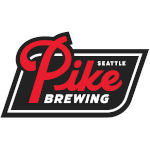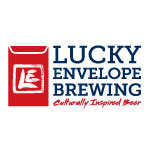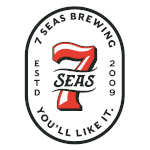The deal that would see AB-InBev (ABI) merge with SABMiller to create one super-megabrewery is raising concerns on Capitol Hill. Those concerns sparked today’s hearings. The proposed $107 billion takeover plan would create a single company that controls nearly a third of the global beer market.
Some senators have voiced concerns that the merger would make it harder for craft brewers to sell their product. These fears, which are shared by many voices in the craft beer industry, primarily focus on the distribution networks that the two megabreweries already control and how this merger might allow them to expand their already massive influence on the marketplace.
Congressional leaders are holding hearings on the subject today. Among those testifying is Bob Pease, the CEO of the Brewers Association, the non-profit trade association that represents America’s small and independent brewers. His testimony had to be submitted in writing, in advance, which explains why his entire testimony is included below.
One particularly important part of Pease’s testimony involves AB-InBev’s ability to influence distributors in a way that harms craft breweries, providing incentives to reduce sales of what it calls “competing brands” within a distributor’s portfolio. One part of Pease’s testimony, Exhibit F, seems to be the real smoking gun.
In his testimony, Pease says, “Over the last several months, ABI demonstrated its ability to expand control of the wholesale tier by leveraging its company-owned wholesalers and relationships with favored wholesalers…”
“If ABI is permitted to maintain ownership of wholesalers, ABI can continue to systematically sell parts of its wholesaler network to other favored wholesalers that ABI effectively controls. Simultaneously, ABI will continue to purchase additional independent wholesalers and discontinue sales of competing brands that the independent wholesalers currently sell…”
For example, imagine that Anheuser-Busch InBev purchases a company called Craft Beer Friendly Distributors and turns over all of it’s brands to Big Budweiser Distribution Company, which it then incentivizes to eliminate the “competing brands.” Any brewery locked into a contract with Craft Beer Friendly Distributors would be, simply put, screwed.
Pease continues, in some detail, to explain how the ABI distributor incentive program works and how it is targeted at disrupting the sales of competing brands.
“ABI’s massive economic presence and control over wholesalers allows ABI to engage in these disruptive and harmful tactics. The Colorado and California transactions involved assets worth hundreds of millions of dollars and both involved many subtle tactics to disrupt sales of competing brands totaling hundreds of millions of dollars to independent wholesalers that reduce sales of competing brands. The ABI system is based on a sliding scale with the largest financial rewards to those who limit sales of competing brands to 2 percent, 5 percent, and 10 percent. Anything less than 90 percent gets a “C” rating in the tight AB grading scale…”
“ABI has furthered its economic reach into the wholesale tier of the industry through direct ownership, direct financial support of consolidation, and a variety of direct and indirect financial incentives to encourage wholesalers to deal exclusively in ABI products.”
As part of his testimony, Pease presented exhibits, including Exhibit F, which is particularly damning in that it presents, verbatim, the actual ABI incentive program that encourages wholesalers to reduce the sales of competing brands. In doing so, Pease is presenting, in ABI’s own words, proof that ABI leverages its relationship with wholesalers to eliminate competition.
In the end, the Brewers Association strongly believes that the Department of Justice should:
- Require ABI to divest its company-owned wholesalers
- Modify its anticompetitive financial assistance and incentives to wholesalers to refrain from distributing other brands of beer.
Pease concludes by saying that The Brewers Association believes “The Department of Justice must also closely scrutinize ABI’s activities that affect U.S. and global markets goods and services used by brewers. ABI is already vertically integrated through ownership of agricultural and packaging subsidiaries. Its increasing global presence creates many opportunities to adversely affect competition for goods and services in the beer industry.”
Below is the complete text of Bob Pease’s testimony, in PDF format. Download it here.


































Isn’t that enlightening? Incentives for selling/distributing less beer from competitors; like virtually no beer from competitors. Me thinkith they manipulatith too much!